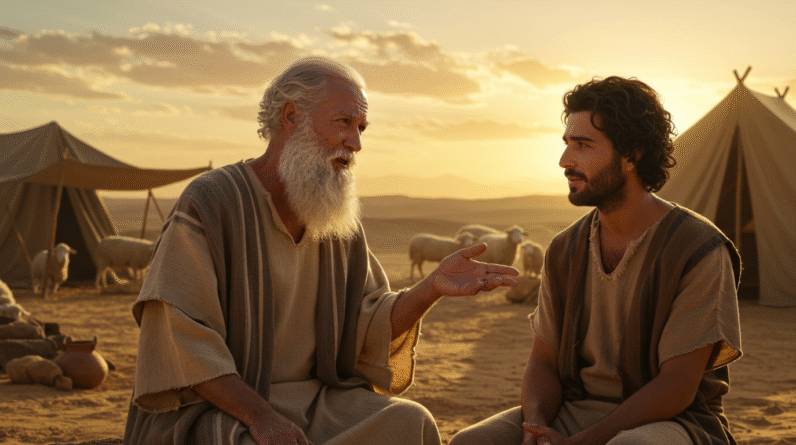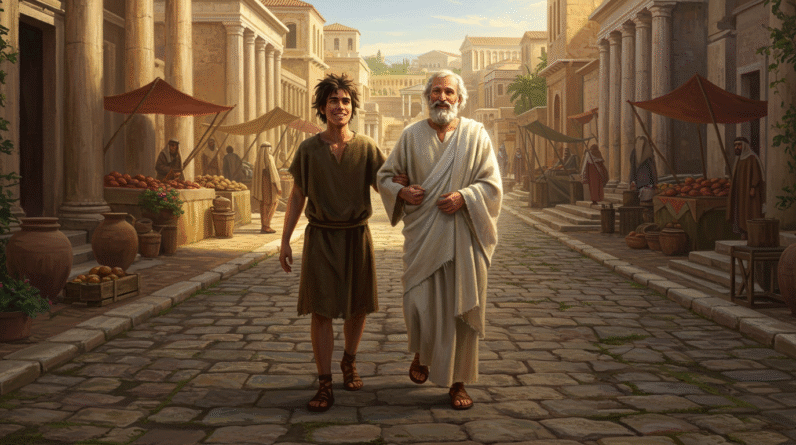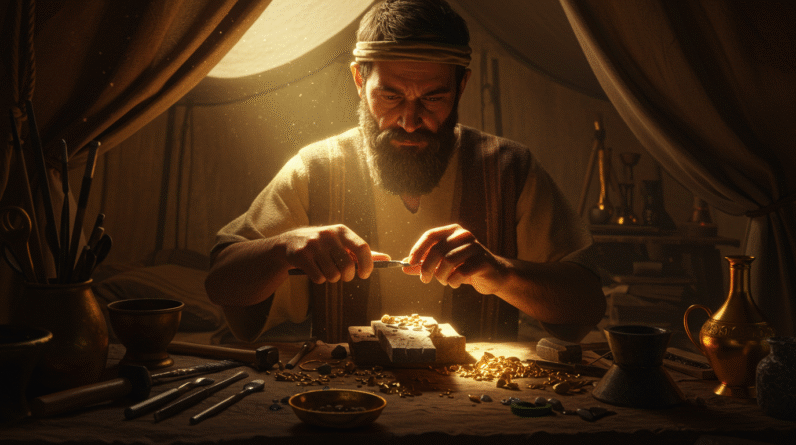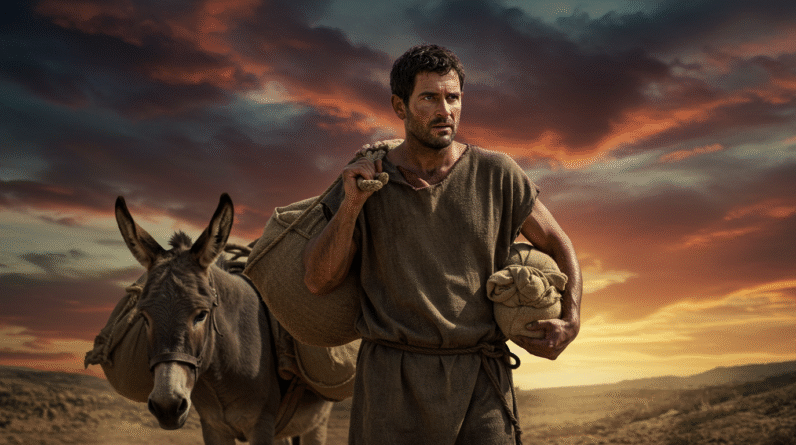Bartimaeus: A Lesson in Faith and Perception from Mark 10:46-52
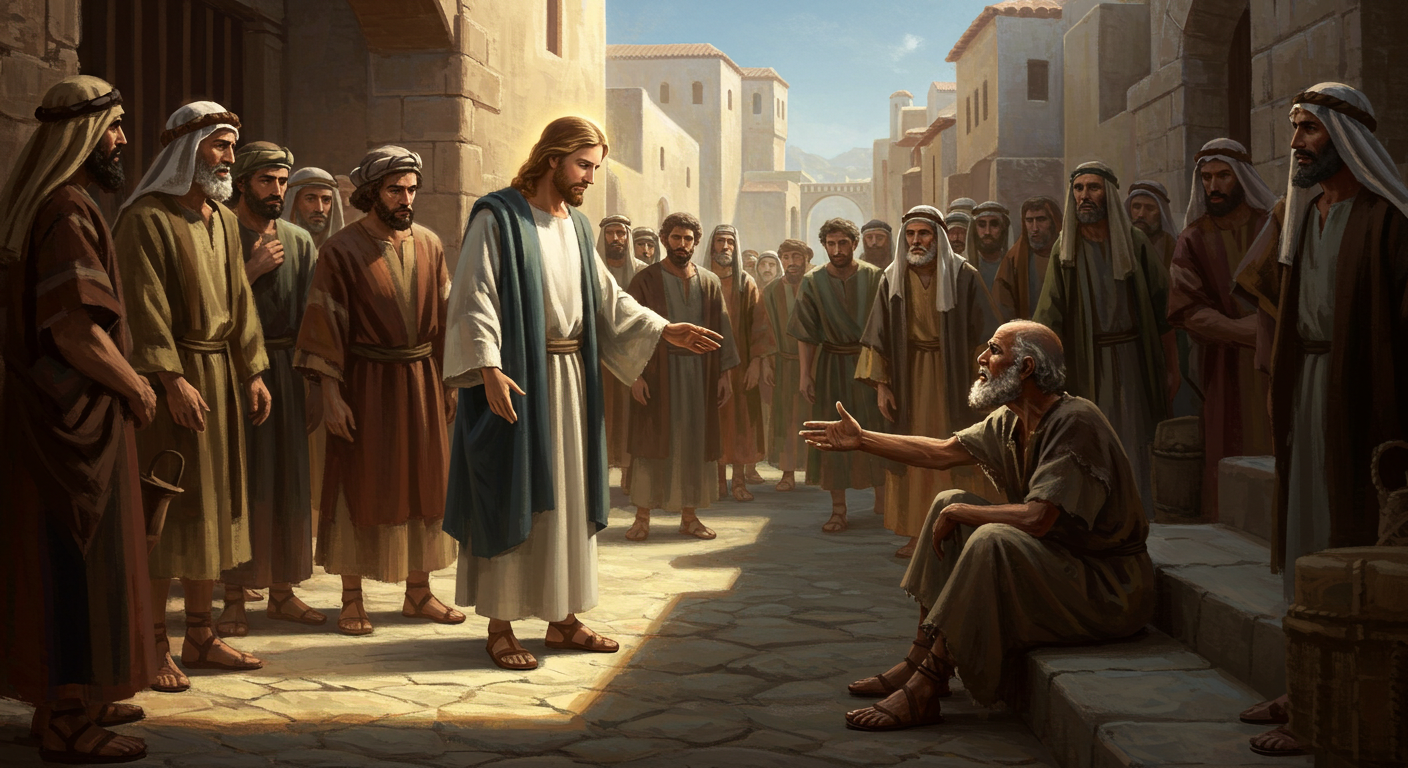
Introduction
In the bustling streets of Jericho, amidst the dust and the crowd’s noise, sits a figure whose name has echoed through centuries as a beacon of faith and transformation — Bartimaeus. Not just a beggar on the roadside but a man of profound faith and desire to see beyond physical sight. His encounter with Jesus, as recorded in Mark 10:46-52, offers us a timeless lesson in belief and perception. Bartimaeus’ story is not only his own; it’s a tale of courage, desperation, and the miraculous intersection of divine intervention and human need.
Their Story in the Bible
Bartimaeus’ tale unfolds with simplicity yet astonishing impact. As Jesus was leaving Jericho with his disciples, Bartimaeus was positioned at the roadside — a blind man identified through his lineage as the son of Timaeus. Despite his physical blindness, Bartimaeus possessed vision and insight into who Jesus was, unlikely among the crowds who could physically see.
In his darkness, Bartimaeus recognized his moment of chance, crying out, “Jesus, Son of David, have mercy on me!” (Mark 10:47). His cry was not just a shout for alms or attention; it was an acknowledgment of Jesus’ lineal and messianic identity. Many rebuked him, urging silence, but Bartimaeus shouted all the louder. His persistent voice pierced through the opposition, reaching Jesus and prompting a life-altering call to action.
Jesus heard his cry and asked for Bartimaeus to be brought to Him. When Jesus inquired, “What do you want me to do for you?” Bartimaeus’ response was direct: “Rabbi, I want to see.” (Mark 10:51). With faith as clear as his request, Bartimaeus received his sight, and instead of returning to his old ways or remaining on the roadside, he followed Jesus along the path.
Lessons from Their Life
Bartimaeus teaches us several invaluable lessons. First is the power of unwavering faith. Despite societal pressures and the judgmental whispers of the crowd, his belief that Jesus could change his life did not waver. Bartimaeus reminds us that true vision transcends physical sight and is anchored in deep faith and recognition of divine opportunities.
Secondly, his story underscores the importance of persistence. In a world that often tries to stifle our voices and desires, Bartimaeus exemplifies the courage to be persistent in our cries for help. His refusal to be silenced, aiming for the source of his salvation, is a powerful testament that standing firm in one’s convictions can lead to miraculous breakthroughs.
Lastly, there’s a lesson in gratitude and immediate commitment. Once his sight is restored, Bartimaeus doesn’t just walk away. Instead, he follows Jesus, an act of gratitude and acknowledgment, living out the transformation he received. It challenges us to consider how we respond to the blessings and opportunities given to us and whether we walk in gratitude and commitment.
Connection to Today’s World
Bartimaeus’ story resonates profoundly in today’s world, where we often find ourselves ‘blind’ to truths due to distractions, societal pressures, and personal struggles. Whether it’s dealing with emotional, social, or spiritual blindness, Bartimaeus’ unwavering acknowledgment of Jesus as his source of healing teaches vital lessons. In today’s context, this story guides us to seek help relentlessly and focus on our true source of transformation.
In our modern communities, where expectations often drown genuine desires and needs, his story inspires us to push against the noise and seek what truly matters. This could be in personal faith, navigating societal challenges, or even within familial structures where voices need to be heard.
Bartimaeus’ journey from darkness to sight can guide those dealing with physical disabilities, reminding them and others that limitations do not define one’s worth or ability to perceive the profound.
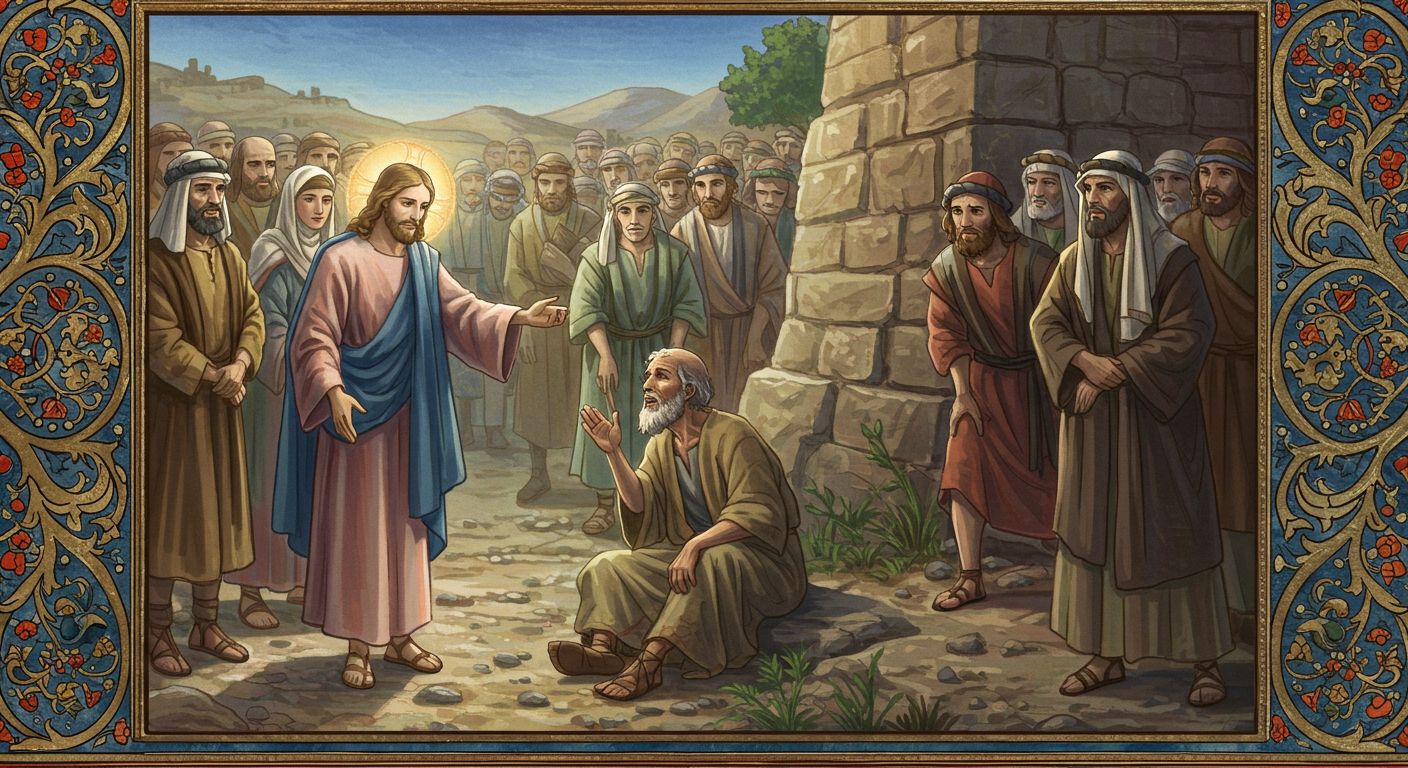
Key Bible Verse
“‘Go,’ said Jesus, ‘your faith has healed you.’ Immediately he received his sight and followed Jesus along the road.” (Mark 10:52).
This verse not only encapsulates the miracle of Bartimaeus’ healing but emphasizes that faith is a powerful healing force and pathway to transformation. It’s a reminder that faith can lead to immediate change and a new direction in life when met with divine grace.
Thought-Provoking Question
In moments of need or when faced with societal pressure, do you have the courage of Bartimaeus to cry out persistently in faith? Are you willing to follow in gratitude and commitment after receiving the breakthroughs you seek?
Historical/Cultural Context
Bartimaeus’ story is set in a time when physical disabilities often condemned individuals to societal margins. Begging by the roadside was one of the few options available to survive. Yet, this backdrop only heightens the impact of Bartimaeus’ faith journey. Considering the Jewish context, recognizing Jesus as the ‘Son of David’ was a profound statement of messianic belief, highlighting Bartimaeus’ spiritual insight despite physical blindness.
Comparison with Other Characters
In comparison, consider the story of the woman with the issue of blood (Mark 5:25-34). Like Bartimaeus, her faith drove her through adversity to touch Jesus’ garment for healing. Both characters teach resilience, the power of faith, and perception over societal dictation, and serve as timeless reminders of faith’s role in transformation.
Prayer
Heavenly Father, thank you for the story of Bartimaeus and the lessons of unwavering faith and vision it imparts. Help us, like him, to call out to you against all opposition, to persist in faith, and to walk in gratitude and commitment on paths aligned with Your will. Amen.


